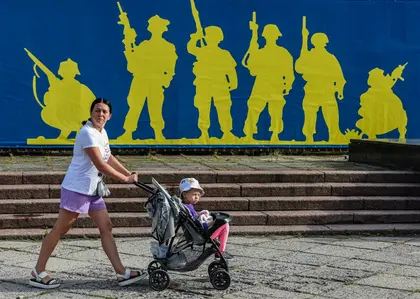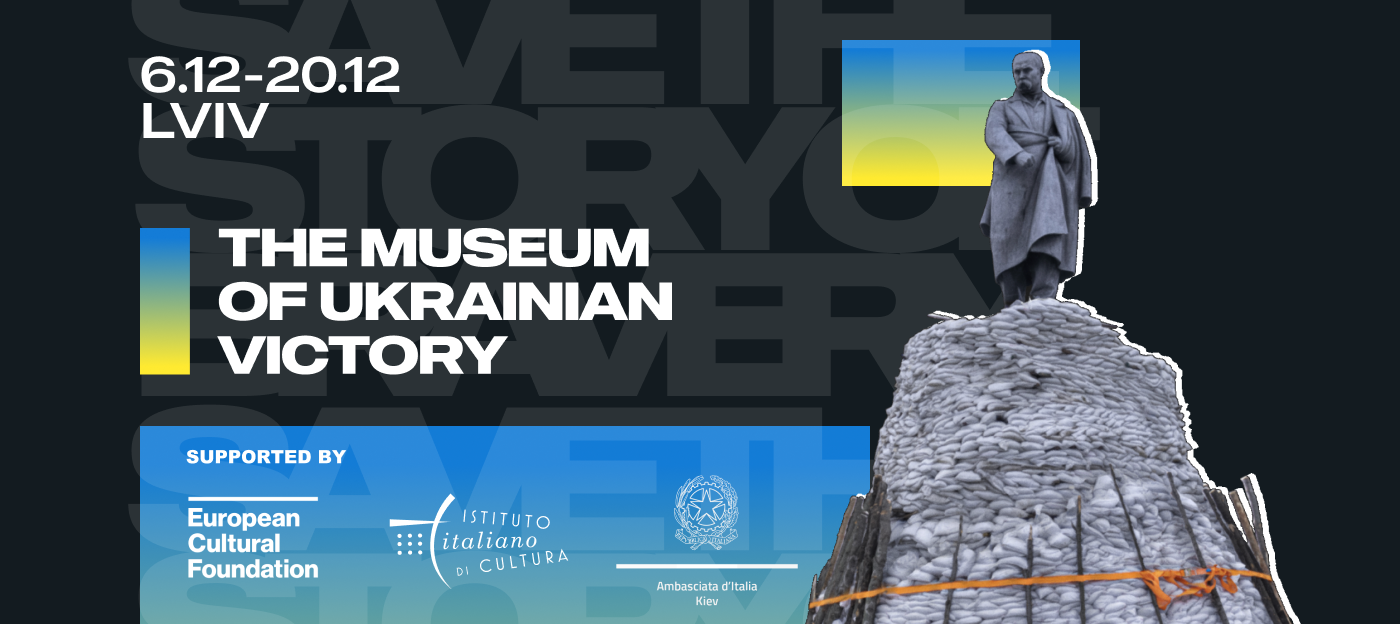The exhibition “Museum of Ukrainian Victory” opened in Lviv on Dec 6, with the support of more than a dozen Ukrainian, Italian and other international partners. The digital war documentary project reflects on the full picture of Russia’s brutal war against Ukraine.
Featuring 3D reconstructions of homes, burnt-out cars and convoys, as well other objects that catalogue the traces of destruction removed from the streets across Ukraine, the event preserves seemingly ordinary objects that have suffered or changed drastically in form.
The opening night featured the forum “Digital Heritage for Recovery” – a discussion on digitizing heritage.
JOIN US ON TELEGRAM
Follow our coverage of the war on the @Kyivpost_official.
“It is obvious that Ukraine has a wonderful and extraordinary heritage, so we, as Italians, are striving to do everything possible, using the latest technologies, to continue the work of preserving it and sharing our experiences,” said Edoardo Crisafulli, director of the Italian Institute of Culture in Kyiv.
Forum participants also discussed strategic steps for the future reconstitution of Ukraine, including investment, support for cultural funds, and the role of scientists, museums, cultural figures, society and the European Union (EU).
Anastasia Bondar, Ukraine’s deputy minister of culture and information policy of Ukraine, opened the forum and explained the importance of systematically collecting heritage data and archiving it digitally.

N. Korean Troops Massed in Russia to Enter Ukraine War ’Soon’: Pentagon Chief
The event featured a series of presentations about digitization projects from 2022, including the 4CH project; Backup Ukraine (Denmark); War up close (Kyiv); Museum Territory of Terror (Lviv) and Odesa Fine Arts Museum (Odesa).
Rehana Schwinninger-Ladak, head of the unit “Interactive Technologies, Digital for Culture and Education” at the European Commission, took part in the panel discussion “EU-UA best practices.” She said: “Now is the time, I hope, when we can predict how to repair, restore and rebuild, because the task of preserving memory never stops. This is the time when we can apply our experience and knowledge… for the future restoration of Ukraine.”
She added that supporting Ukraine has been one of the EU Commission’s top priorities since Feb. 24 when Russia launched its brutal invasion.
Ukrainian specialists of digitalization took part in the panel discussion “3D Scanning during the war – results of 2022” under the direction of architect Yulia Frolova, senior tutor from the department of architecture and conservation at Lviv Polytechnic University. Other panelists discussed issues relating to recording and storing data on cultural heritage in Ukraine and the EU, and explained how digitalization has taken place during wartime.
“In order to unite people to act for peace, to win against disinformation and propaganda, we plan to use innovative documentary tools and cultural heritage to inform the people of Ukraine and the EU about the immediate consequences of the war in Ukrainian cities,” said Iana Boitsova, organizer of the forum and co-founder of the Ukrainian non-profit organization (NPO) “Pixelated Realities.”
She added that a 3D collection of urban properties such as a bombed house, a destroyed tank, a combat projectile, the results of rocket attacks on historic city centers will be brought to life using video installations, which can be watched and studied for free.
Forum participants were welcomed by Svitlana Sharapa Zazo, wife of the Italian Ambassador to Ukraine Pier Francesco Zazo, and Inna Meteleva, director of the charity foundation “Sustainable Development Goals for United Nations SDG”.
About the project
The Museum of Ukrainian Victory is being held at the Memorial Museum of Totalitarian Regimes “Territory of Terror.” It will run until Dec. 20.
Further details can be found on the Pixelated Realities website here, and on the European Creative Hubs Network website here.
The project was implemented by Pixelated Realities, with the support of the European Cultural Foundation, the Foundation for United Nations and the Istituto Italiano di Cultura in Kyiv.
You can also highlight the text and press Ctrl + Enter







